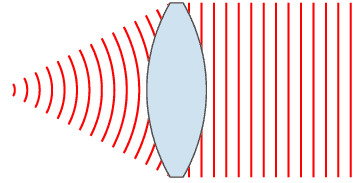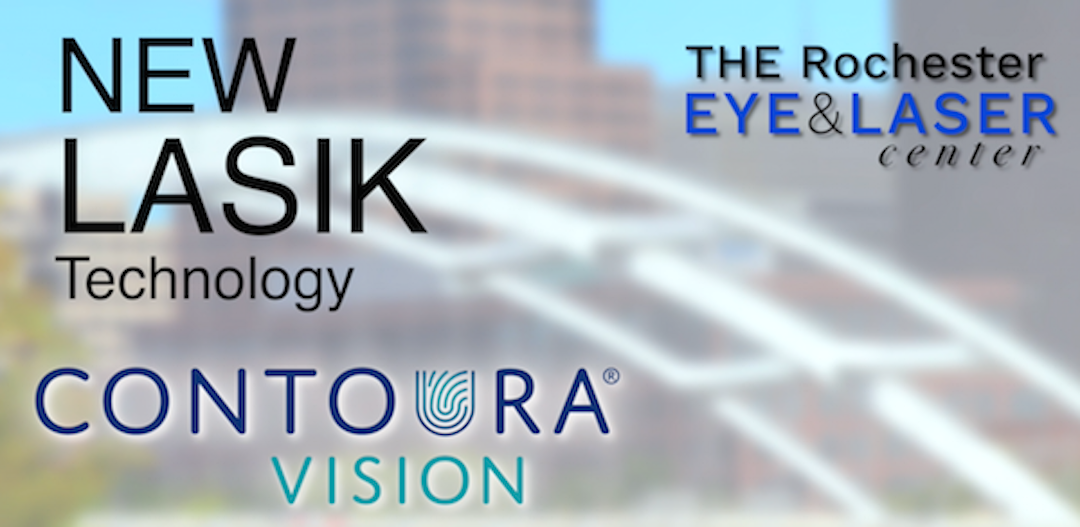WaveScan? WaveFront? WaveWhat? - LASIK
Understanding LASIK Terminology: What Does It All Mean? You may have made the decision to undergo LASIK surgery, but navigating the world of LASIK...

 If you are curious about LASIK, vision correction, you may be confused about different claims you’ve heard. Test your understanding to see if you’ve fallen for five common LASIK myths.
If you are curious about LASIK, vision correction, you may be confused about different claims you’ve heard. Test your understanding to see if you’ve fallen for five common LASIK myths. - Anyone can have LASIK.
- Anyone can have LASIK.
False. Not everyone is a good candidate for LASIK vision correction – thought most people are. The only way to know for sure is to set your appointment for Rochester Eye and Laser Center’s free LASIK examination with our surgeon himself, Dr. Kenneth Lindahl. Your overall health and certain vision conditions may indicate that LASIK is not a good choice for you.. During your full LASIK examination, Dr. Lindahl will determine:
 Corneal thickness -- LASIK is not recommended if the cornea is too thin
Corneal thickness -- LASIK is not recommended if the cornea is too thin
98% of those we examine are good candidates. But don’t fall for the myth that “anyone can have successful LASIK.” - You’ll never need glasses again after LASIK.
- You’ll never need glasses again after LASIK.
False. By our mid-40’s, the eye lens often loses its flexibility and stiffens, causing problems focusing on near objects – whether or not you have LASIK. This age-related condition, called presbyopia, most often gradually occurs over time and happens to everyone. So later in life, you may indeed need reading glasses for up-close reading or in dimly-lit situations. - If you have astigmatism, you can’t have LASIK.
- If you have astigmatism, you can’t have LASIK.
F alse. The shape of the cornea impacts visual acuity, especially astigmatism, when the cornea is shaped more like a football (elongated) rather than a basketball (circular). With astigmatism, advanced LASIK technologies can actually change the shape of the cornea to create the optimal shape and improve vision. But every patient and every eye is unique. During your free and comprehensive LASIK evaluation exam, Dr. Lindahl will determine if your particular degree of astigmatism can be corrected by LASIK.
alse. The shape of the cornea impacts visual acuity, especially astigmatism, when the cornea is shaped more like a football (elongated) rather than a basketball (circular). With astigmatism, advanced LASIK technologies can actually change the shape of the cornea to create the optimal shape and improve vision. But every patient and every eye is unique. During your free and comprehensive LASIK evaluation exam, Dr. Lindahl will determine if your particular degree of astigmatism can be corrected by LASIK. - LASIK is expensive. It’s cheaper to wear glasses.
- LASIK is expensive. It’s cheaper to wear glasses.
False. At first glance, the total cost of LASIK may seem to put it in the “luxury” category for your budget. But think about the long term – never having to buy those expensive drops and cleaning solutions, and replacing contacts and glasses regularly. Those costs add up over time, and they never end. Calculate those numbers (and the inconvenience that goes along with them) and you may find that the one-time cost of LASIK is downright reasonable – especially with the excellent LASIK financing options that Rochester Eye and Laser Center offers. - If I can’t have LASIK, I can’t get my vision corrected.
- If I can’t have LASIK, I can’t get my vision corrected. False. If you are not a good candidate for LASIK vision correction, don’t despair. For those with thin corneas, alternatives include procedures that do not require creating a corneal flap. Alternatively, Refractive Lens Exchange is a procedure in which the natural lens of the eye is replaced with an artificial Intraocular Lens (IOL) to correct vision. There are other options as well, and Dr. Lindahl will be happy to discuss the best options for you.
False. If you are not a good candidate for LASIK vision correction, don’t despair. For those with thin corneas, alternatives include procedures that do not require creating a corneal flap. Alternatively, Refractive Lens Exchange is a procedure in which the natural lens of the eye is replaced with an artificial Intraocular Lens (IOL) to correct vision. There are other options as well, and Dr. Lindahl will be happy to discuss the best options for you.
So how did you do? Were you confused about common LASIK myths?
Don’t dismiss LASIK vision correction without knowing the facts. Schedule your free LASIK Consultation at Rochester Eye and Laser Center in Rochester today at 585-232-2560 or visit rochestereyecenter.com to learn more.

Understanding LASIK Terminology: What Does It All Mean? You may have made the decision to undergo LASIK surgery, but navigating the world of LASIK...

1 min read
LASIK vision correction surgery treats the refractive errors that commonly require prescription lenses to correct – farsightedness, and astigmatism....

If you are curious about LASIK vision correction, the first thing to determine is if you are a good candidate for the procedure and have the...